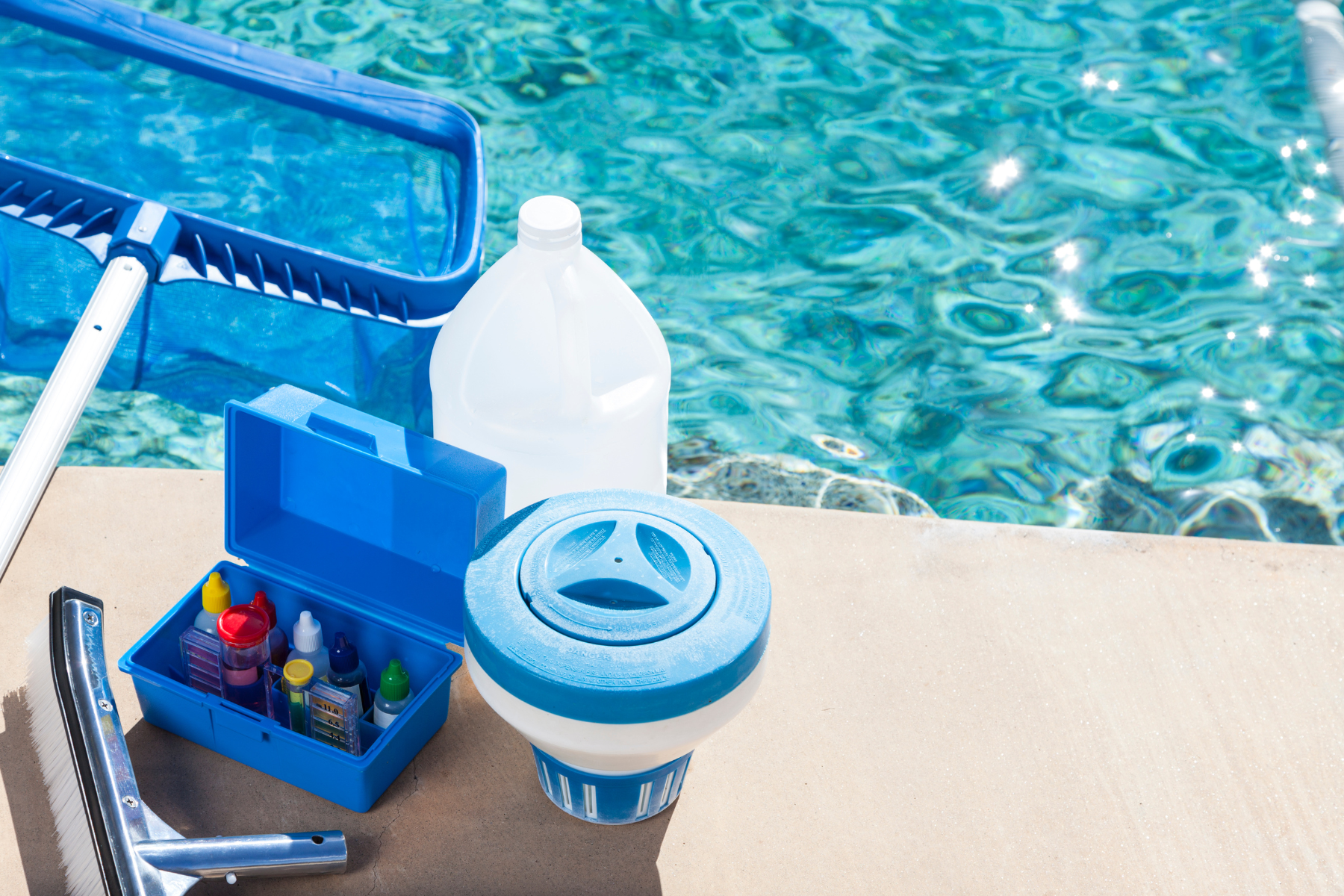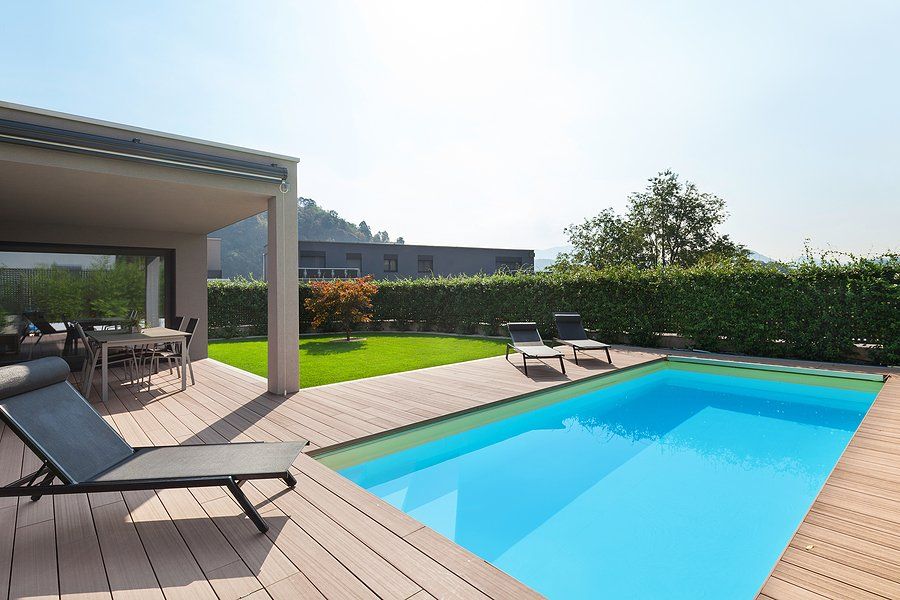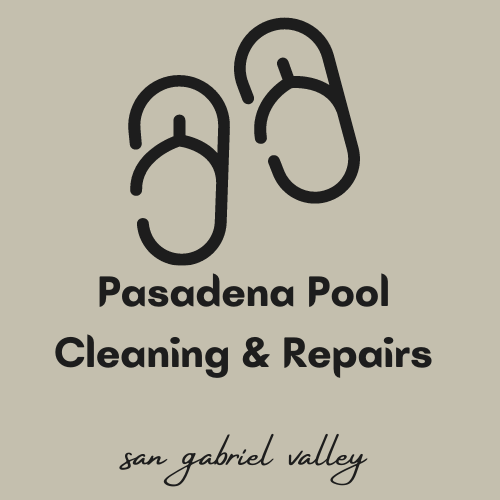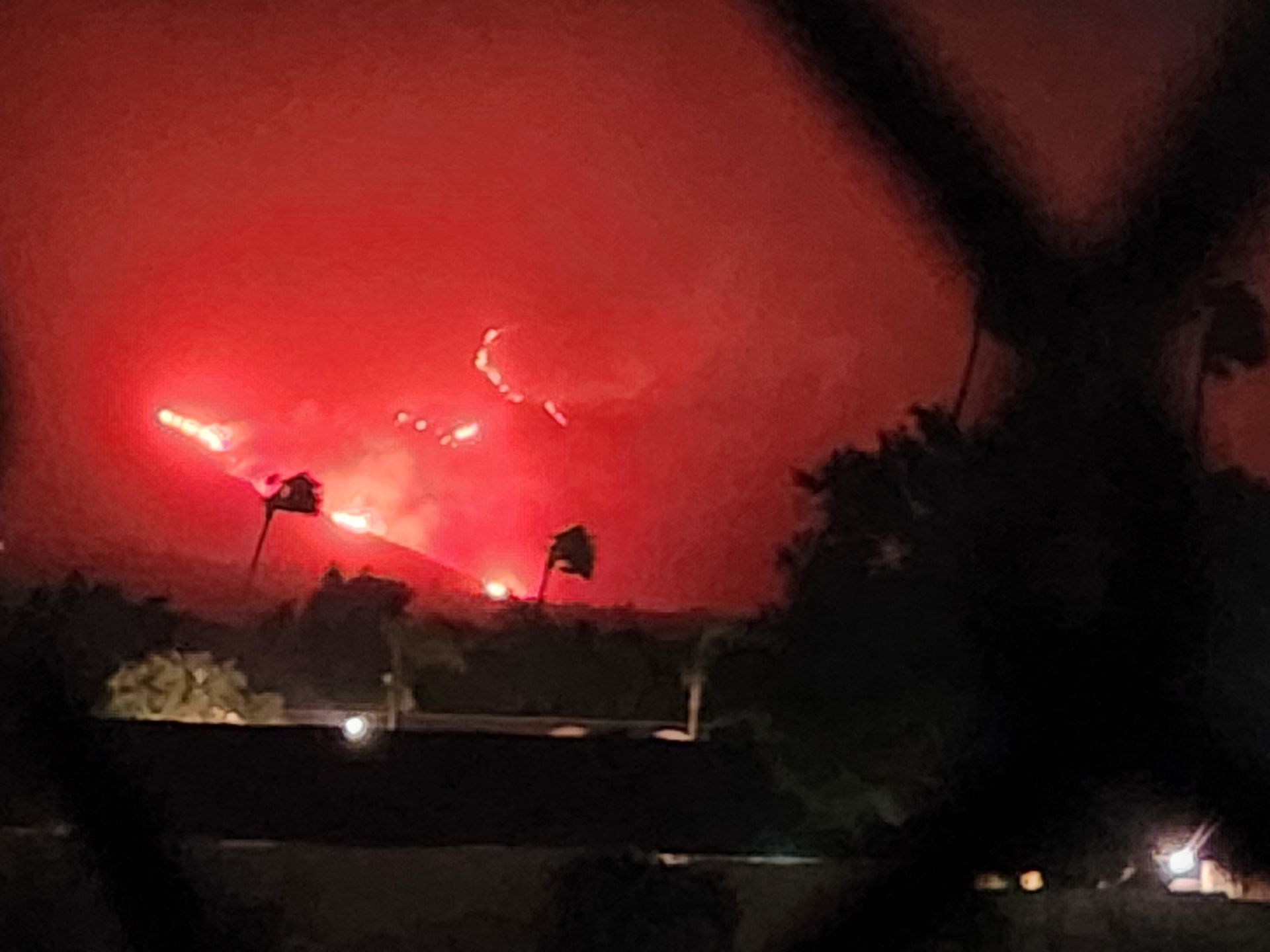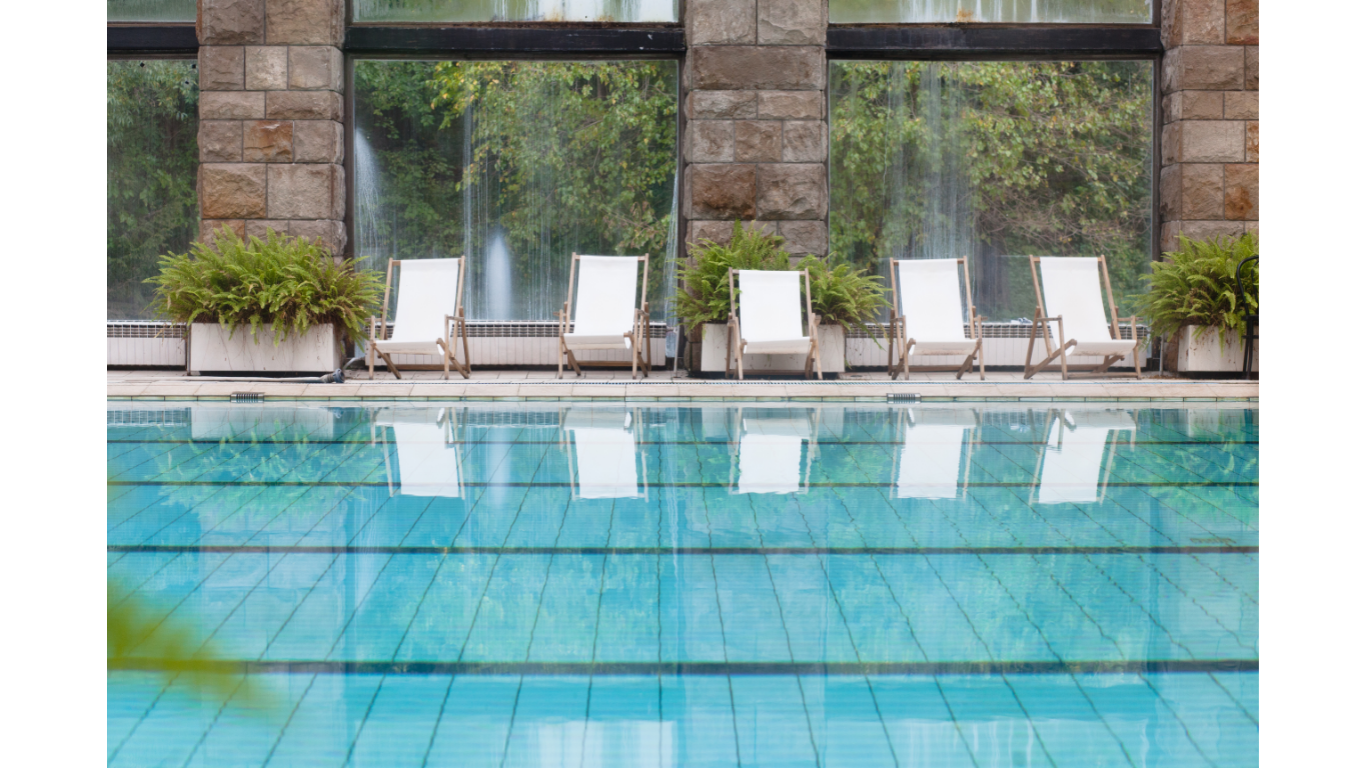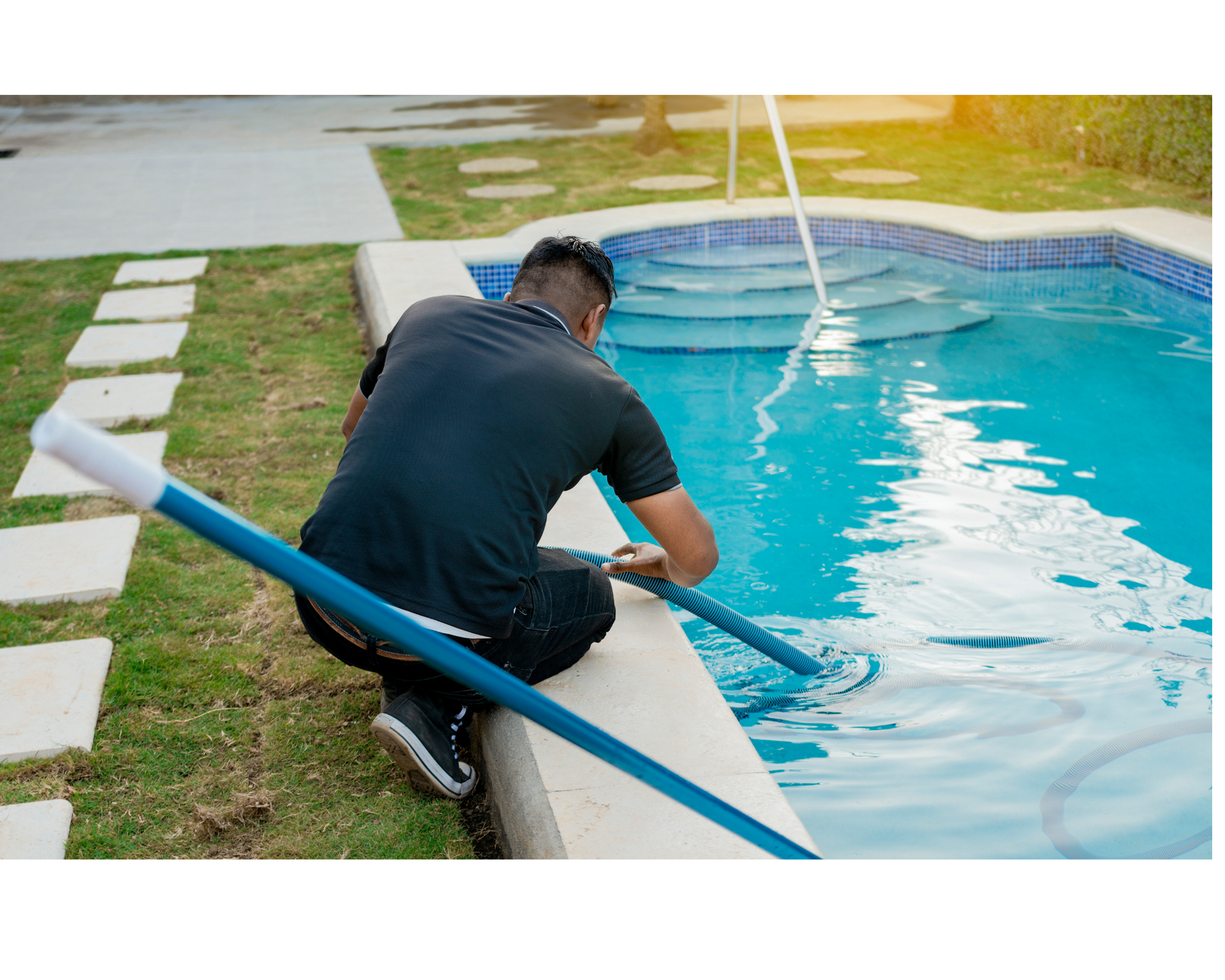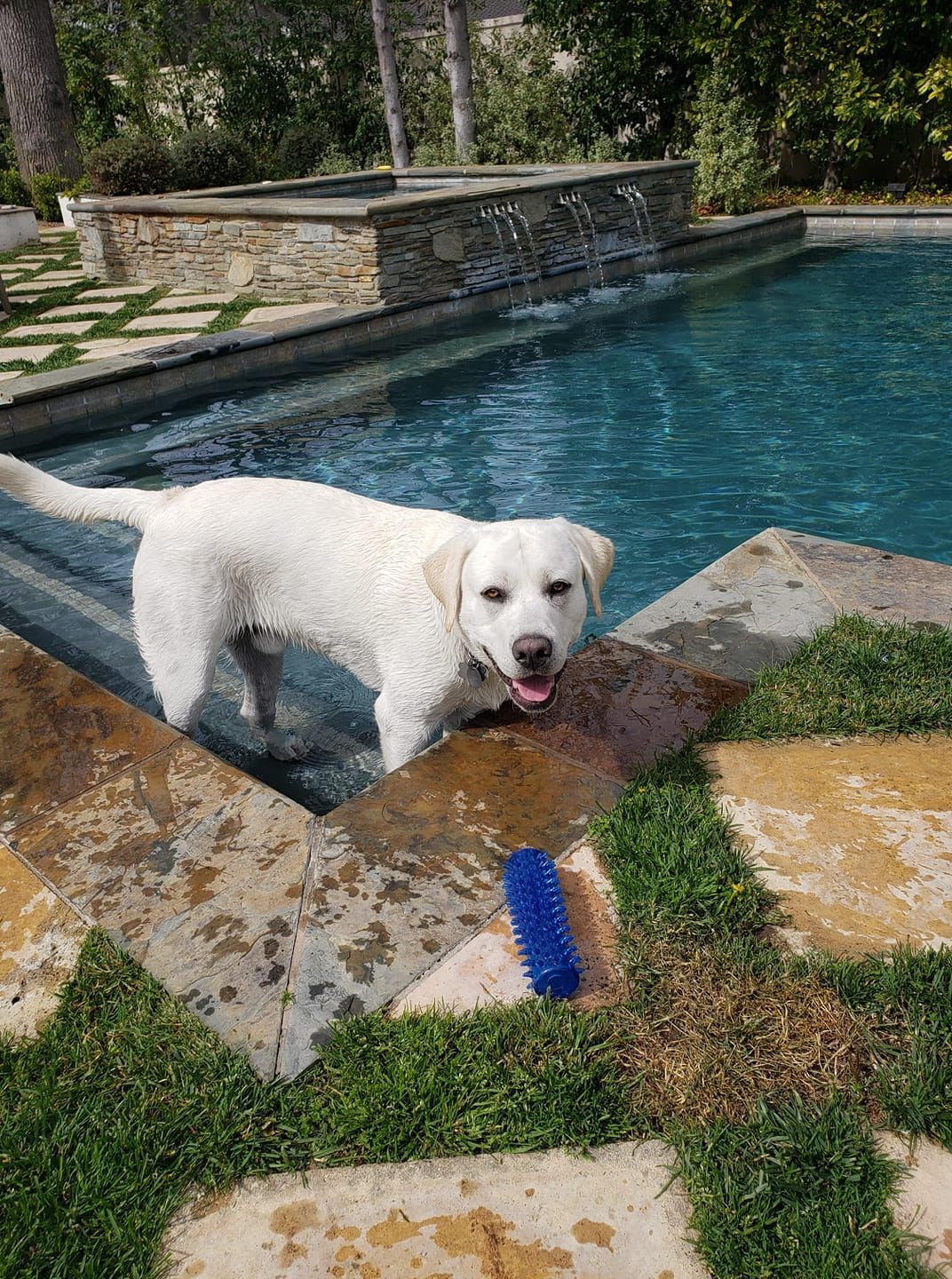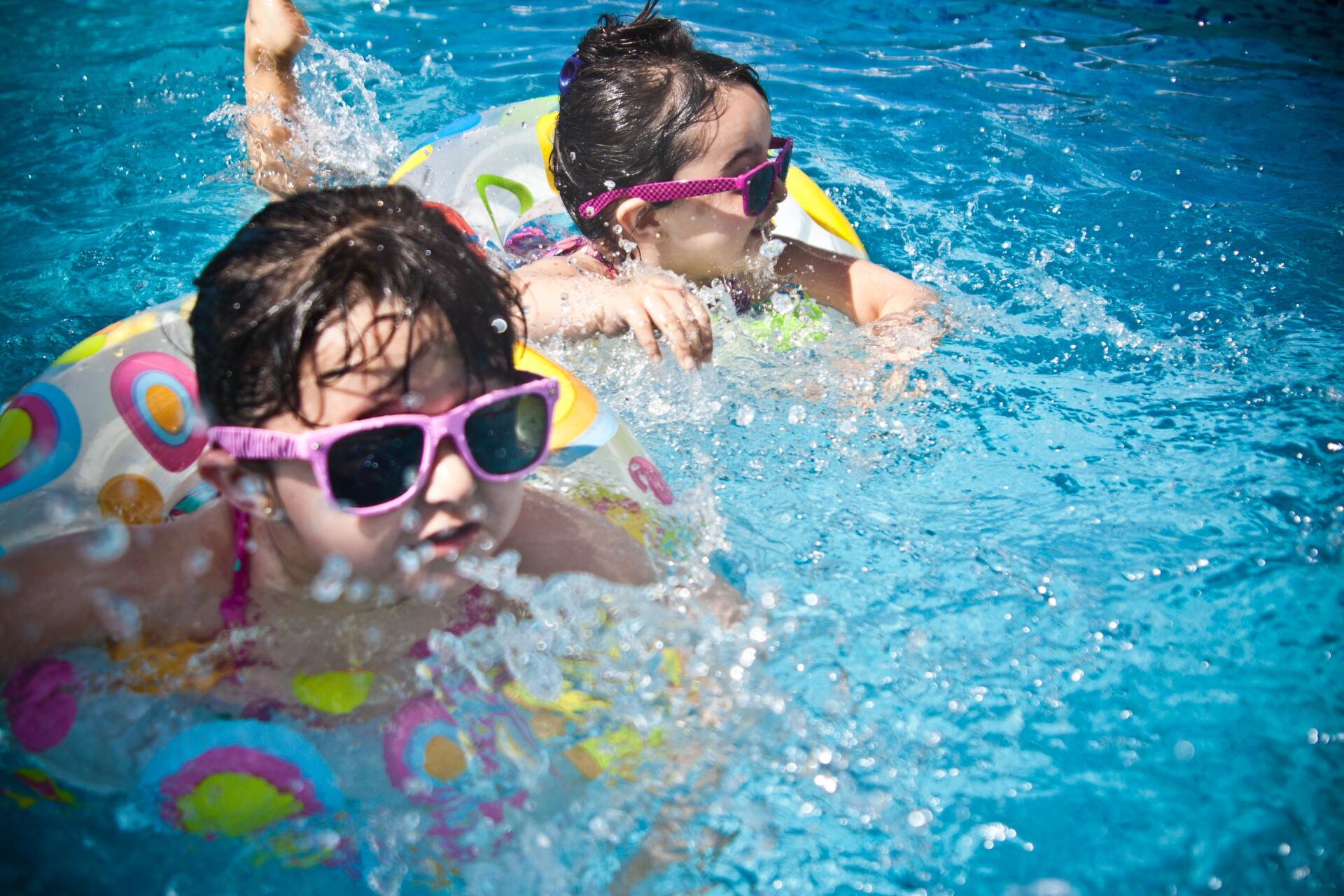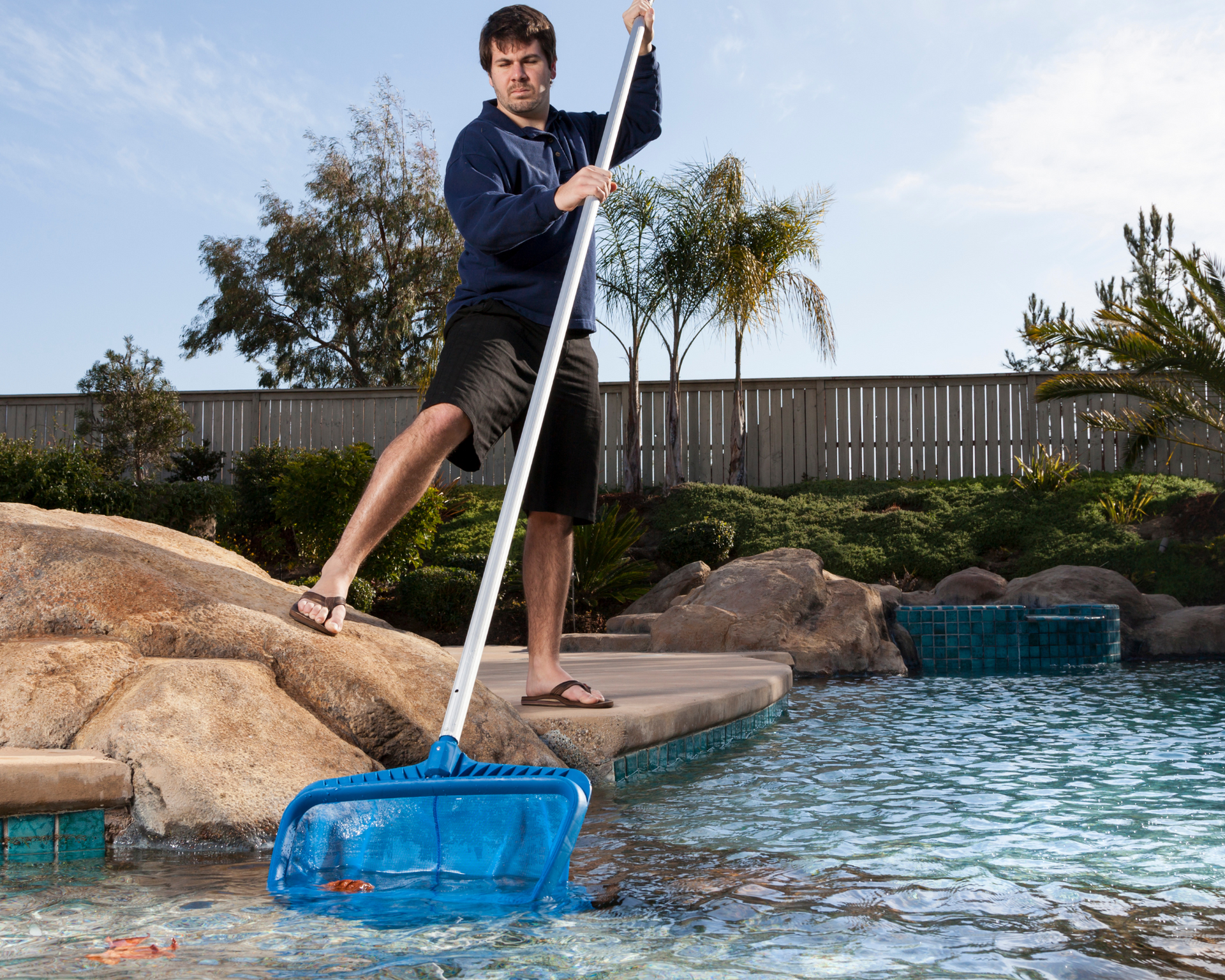If Your Pool Was Affected by the Eaton Canyon -Area Fires Earlier This Year, Have Your Pool Checked Out
The Fire Affected Area Poses A New Health Threat
The recent fires in the Pasadena, Altadena, La Canada Flintridge areas have left many homeowners with concerns about the safety and condition of their properties. Many have only recently turned their attention to their pools. If you have a pool, it is essential to have it inspected to ensure that it is safe for use and free from damage caused by ash and debris. Neglecting this issue could lead to more extensive repairs or health risks later.
Smoke and ash can significantly affect pool chemistry and clarity. Debris can contaminate the water, leading to hazardous conditions for swimmers. Regular maintenance and checks are crucial, especially after significant incidents like fires, to protect both the pool and the people who use it.
As recovery efforts continue, addressing pool safety is an important part of restoring your home. Keeping your pool in top condition contributes to your overall well-being and enjoyment of your outdoor space. Don't miss the opportunity to safeguard your investment and ensure a clean and inviting swimming environment.
Health Concerns with Fire-Affected Pools
Pools in areas affected by The Eaton Fire may have specific health risks that need addressing. Contaminants like ash can compromise water quality, and structural issues from heat or debris can pose safety concerns.
Airborne Ash Contamination
Fire-generated ash can settle in pools, leading to water contamination. Ash may contain harmful substances, including heavy metals and carcinogens, which can pose health risks if ingested or if skin comes into contact with contaminated water.
It's essential to assess the pool for visible ash. Any signs of ash accumulation should prompt immediate action to clean and sanitize the pool. Regular maintenance tasks, such as skimming and vacuuming, can help remove these contaminants. Additionally, using a pool filter is crucial to ensuring that any fine particles are effectively captured.
Chemical Imbalance and Water Quality Issues
Wildfires often disrupt the chemical balance of pool water. The introduction of ash and debris can lead to higher pH levels, increased alkalinity, and imbalanced chlorine levels. This imbalance not only affects water clarity but also can create an unsuitable environment for swimmers.
Testing the water for these chemical levels is necessary. A complete water analysis will identify any adjustments needed. Shock treatments may be required to reestablish proper chlorine levels. Regular monitoring can prevent potential health hazards associated with poor water quality.
Structural Damage from Heat and Debris
High temperatures from nearby fires can weaken the structural integrity of pool materials, including liners and decking. Heat can cause warping, cracking, or other forms of damage that compromise the safety of the pool.
Inspecting the pool for visible signs of damage is critical. Look for warped edges, cracks in the surface, or changes in the shape of the pool. Any structural issues should be addressed by a professional to avoid further risks. Prioritizing repairs will help maintain a safe environment for use.
Pool Safety Inspections
Regular pool safety inspections are essential, especially after significant events like recent fires. Ensuring your pool meets safety standards protects both users and the structure itself. This section will detail when to schedule inspections, what inspectors evaluate, and how to interpret inspection reports.
When to Schedule an Inspection
Under normal pool conditions it is advisable to schedule a pool inspection at least once a year. However, after any significant environmental event, such as the recent L.A. area wildfires, an immediate inspection is crucial.
Key times to consider an inspection include:
- Post-fire: Check for debris and damage.
- Pre-season: Ensure equipment is functional and safe.
- After repairs: Verify that all work meets safety standards.
These inspections can identify risks that may not be visible and ensure compliance with local regulations.
What We Look For
At Pasadena Pool Cleaning and Repairs, we examine multiple aspects of your pool to ensure safety and functionality.
Key focus areas include:
- Water Quality: Testing for proper chemical levels and clarity.
- Structural Integrity: Checking for cracks, leaks, or damage to the pool shell.
- Safety Equipment: Ensuring that lifesaving equipment, like flotation devices, is available and in good condition.
- Fencing and Barriers: Evaluating that all barriers comply with safety regulations.
Each of these components plays a crucial role in maintaining a safe swimming environment.
Cleaning and Maintenance Recommendations
Cleaning and maintaining your pool after the recent fires is essential to ensure its safety and functionality. We recommend that you focus on debris removal, restoring chemical balance, and assessing pool structures and equipment for repairs.
Removing Debris and Sediment
After the fires, ash and debris can accumulate in your pool. Start by using a skimmer net to remove larger debris like leaves and branches.
Next, vacuum the pool to eliminate finer particles and sediment located at the bottom.
Consider using a pool brush to scrub the sides, ensuring that dirt and grime are removed from surfaces. Regularly clearing debris helps prevent algae growth and protects filtration systems from clogs.
Ensure that the pool’s water is circulating during this process to aid in trapping debris in the filter.
Restoring Chemical Balance
The fire can alter your pool's chemical levels, which is crucial for safe swimming. Test the water's pH, alkalinity, and chlorine levels using a reliable test kit.
Aim for a pH level between 7.2 and 7.8 and total alkalinity between 80 to 120 ppm.
Adjust any imbalances by adding the necessary chemicals:
- Use muriatic acid or sodium bisulfate to lower pH.
- Add sodium bicarbonate to raise alkalinity.
After adjustments, allow the water to circulate for a few hours. Retest the water to ensure that all levels are stabilized.
Repairing Pool Structures and Equipment
Inspect the pool and surrounding equipment for any fire damage. Look for visible cracks in the pool surface or damage to tiles.
If you spot issues, consider contacting a pool professional for repairs.
Additionally, check equipment such as filters, pumps, and heaters for damage from heat or debris.
Clean or replace filters if they show signs of wear. Proper equipment maintenance ensures your pool remains reliable and safe for use.
Preventive Measures for Future Fires
Taking proactive steps can significantly reduce the risk of fire damage to properties, especially pools. Here are specific measures to consider.
Protective Pool Covers
Using protective pool covers can shield your pool from embers and debris during a wildfire. Look for fire-resistant materials designed to withstand high temperatures. Covers that fit securely will help prevent potential fire damage, as debris accumulation can ignite.
- Types of Covers:
- Mesh covers allow water to drain while keeping debris out.
- Solid covers provide better fire resistance.
Installing a cover not only protects your pool, but it can also prevent evaporation and keep your water clean.
Landscaping and Defensible Space
Creating a defensible space is crucial in fire-prone areas. This area acts as a buffer between your home and potential fire hazards.
- Key Practices:
- Maintain a 30-foot clearance around your pool and/or property by removing dead plants, dry grass, and leaves.
- Use fire-resistant plants and materials for landscaping. Options like succulents and native shrubs are less likely to ignite.
- Space trees at least 10 feet apart to avoid fire spreading from tree to tree.
Regular maintenance of this space can impede fire spread and enhance safety.
Upgrading Pool Filtration Systems
Investing in a better pool filtration system can be a valuable preventive measure. A high-quality system can filter out unwanted debris and maintain water quality, reducing the risk of contamination from fire-related pollutants.
- Considerations for Upgrading:
- Look for systems with high-efficiency particulate air (HEPA) filters to remove fine particles.
- Regularly schedule maintenance checks to ensure optimal function.
Upgrading the filtration system can improve the longevity of the pool and enhance its resilience against environmental damage.
Financial Considerations
Assessing the financial impact of the L.A.-area wild fires is crucial for homeowners with pools. Understanding inspection costs, navigating insurance claims, and exploring financial assistance options are essential steps in this process.
Cost of Inspection and Repairs
The cost of pool inspection can vary based on the extent of damage and the type of pool. On average, a professional pool inspection ranges from $100 to $200. Repair costs depend on damage severity but can escalate quickly.
Common repairs might include:
- Plumbing issues: Costs can range from $150 to $500.
- Structural damage: Repairing or resurfacing can cost upwards of $1,000.
Homeowners should prioritize getting estimates from multiple contractors. This ensures a competitive price for necessary repairs. Regular maintenance can prevent further costs associated with damage.
Insurance Claims Process
Homeowners should contact their insurance companies promptly. Each policy will have different terms regarding fire damage and pool repairs. Prepare documentation, such as:
- Photographs of damages
- Inspection reports
- Repair estimates
Most insurers require a deductible before coverage kicks in. It is critical to review your policy to understand your coverage limits.
Keep records of all communications with your insurance provider. This can aid in expediting the claims process.
Financial Assistance Programs
Homeowners may qualify for various assistance programs post-disaster. Local government agencies often provide support for those affected by natural disasters, including fire damage.
Resources include:
- FEMA Disaster Assistance: May cover repairs not included in homeowners’ insurance.
- State or local emergency funds: These can offer low-interest loans or grants.
Check with Los Angeles city hall or local disaster response organizations for specific programs available in your area. Apply early, as funding may deplete quickly.
Hiring Professional Services
Considering the recent L.A.-area fires, it is essential to ensure the integrity of your pool. Hiring the right professionals can help address any damage or concerns effectively.
Selecting Reputable Contractors
When looking for contractors, prioritize those with relevant experience in pool repair and maintenance following disaster events.
- Research Credentials: Verify licenses, certifications, and insurance coverage.
- Seek Recommendations: Ask friends, family, or neighbors for referrals.
- Read Reviews: Look at online platforms like Yelp or Angie's List for customer feedback.
Contact potential contractors to discuss your specific needs and request quotes. This interaction can provide insight into their communication style and professionalism. Choose contractors who demonstrate responsiveness and a thorough understanding of your concerns.
Ensuring Quality Service
To ensure you receive high-quality service, prioritize transparency and service guarantees.
- Request Detailed Estimates: This should include timelines and a breakdown of costs.
- Inquire About Materials: Discuss the types of materials that will be used and their durability.
- Ask About Warranties: Understand what guarantees the contractor offers for both labor and materials.
Establish clear communication regarding project milestones and expectations. Regular check-ins during the project can help ensure everything meets your standards. Defensive follow-up visits may also be wise to confirm the quality of the finished work.
Conclusion
If you experienced the L.A.-area fires earlier this year and own a pool, it is essential to ensure its safety and usability. Fire-related debris can introduce various issues that affect pool maintenance and water quality.
Key considerations include:
- Debris Inspection: Check for ash, leaves, and other materials in and around the pool.
- Water Quality: Test the water for chemical balance and contaminants.
- Equipment Check: Inspect pumps, filters, and heaters for any fire damage or operational issues.
Regular maintenance is crucial. Scheduling a professional inspection can identify potential hazards and ensure the pool remains a safe environment.
Taking these steps will help you enjoy your pool safely and keep it in good condition following the fires. Prioritizing safety now can prevent more extensive issues later.
